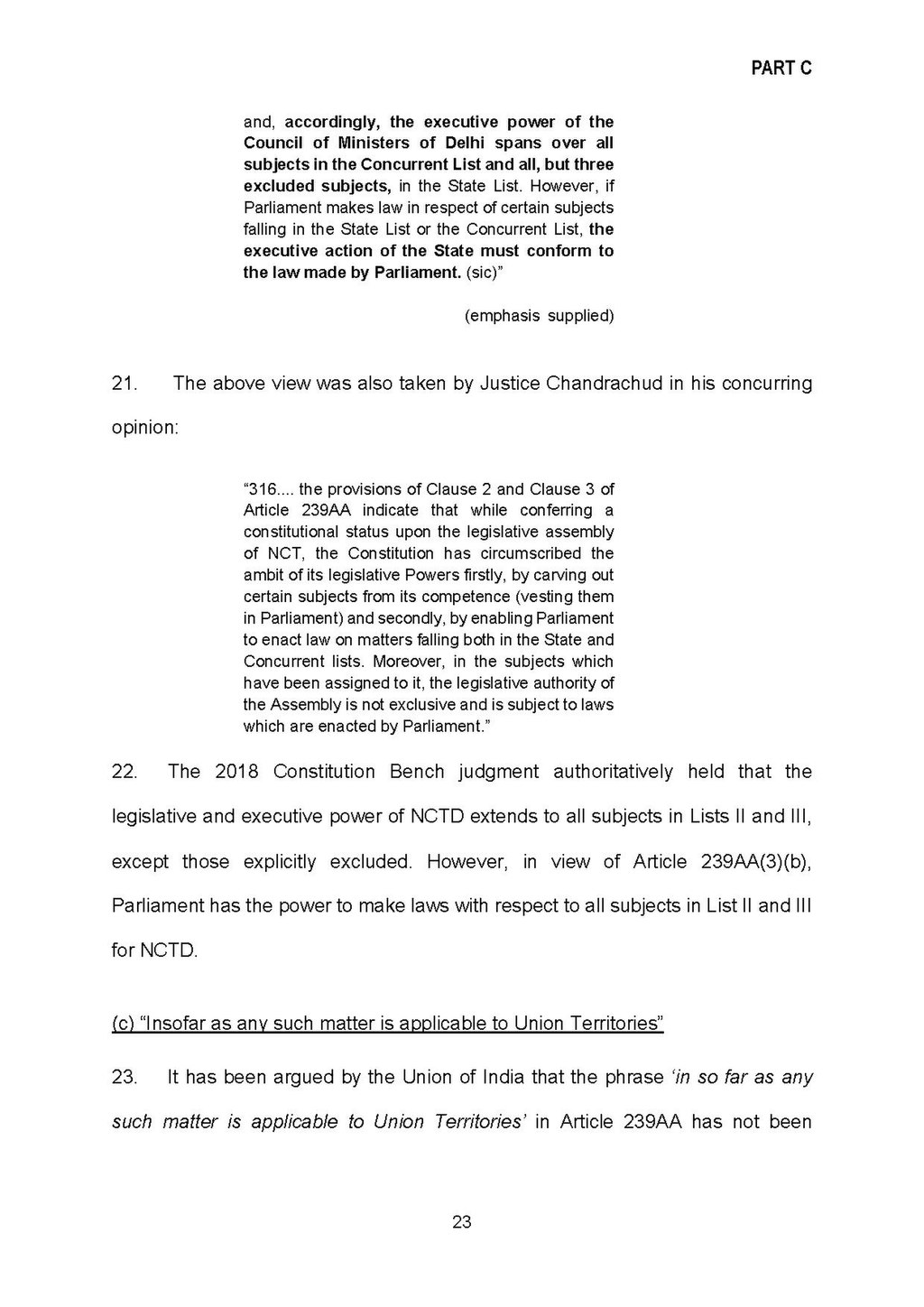and, accordingly, the executive power of the Council of Ministers of Delhi spans over all subjects in the Concurrent List and all, but three excluded subjects, in the State List. However, if Parliament makes law in respect of certain subjects falling in the State List or the Concurrent List, the executive action of the State must conform to the law made by Parliament. (sic)”
(emphasis supplied)
21. The above view was also taken by Justice Chandrachud in his concurring
opinion:
“316.... the provisions of Clause 2 and Clause 3 of Article 239AA indicate that while conferring a constitutional status upon the legislative assembly of NCT, the Constitution has circumscribed the ambit of its legislative Powers firstly, by carving out certain subjects from its competence (vesting them in Parliament) and secondly, by enabling Parliament to enact law on matters falling both in the State and Concurrent lists. Moreover, in the subjects which have been assigned to it, the legislative authority of the Assembly is not exclusive and is subject to laws which are enacted by Parliament.”
22.The 2018 Constitution Bench judgment authoritatively held that the legislative and executive power of NCTD extends to all subjects in Lists II and III, except those explicitly excluded. However, in view of Article 239AA(3)(b), Parliament has the power to make laws with respect to all subjects in List II and III for NCTD.
(c) “Insofar as any such matter is applicable to Union Territories”
23. It has been argued by the Union of India that the phrase ‘in so far as any such matter is applicable to Union Territories’ in Article 239AA has not been
23
